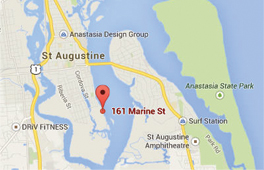Parkinson’s Disease Speciality Care
Parkinson’s Disease Speciality Care
Assisted living communities often include meals, medication monitoring, 24-hour emergency care, personal care assistance, housekeeping, laundry and recreational activities, all of which may greatly benefit those with Parkinson’s disease.
Be aware, however, that not all communities are created equal – as services vary considerably spend some time thoroughly checking out a number of residences. Look for places that not only provide high caregiver-to-resident staffing ratio, but train their staff to understand Parkinson’s disease and its signs and symptoms.
For example, staff should be on the lookout for swallowing difficulties (signs include clearing the throat when eating or a “gurgling” vocal quality during meals), as this is a common condition in people with advanced Parkinson’s. Staff should also keep a close eye on changes in physical function and should always check residents’ ability to communicate basic needs and ideas.
A Multidisciplinary Approach Works Best
People living with Parkinson’s disease may benefit from many interventions besides medication. With this in mind, search for assisted living communities that provide a multidisciplinary treatment approach to managing care. Members of the team could include a:
- Licensed nurse as well as other nursing staff
- Physician
- Neurologist
- Physical and/or occupational therapist
- Speech therapist
- Pharmacist
It may also be helpful to have a psychologist, psychiatrist or counselor on board if your parent (or partner) is experiencing depression or anxiety.
Monitoring of a Parkinson’s Diet is Critical
A nutritionist or dietitian is also a key part of the team as diet is critical for persons living with Parkinson’s disease. In addition, staff need to administer drugs at precise times prior to and following meals, and must closely monitor interactions between food and medications.
Residents taking the drug levodopa (or l-Dopa), commonly prescribed to persons with Parkinson’s, may need to follow a protein redistribution diet. Another concern is weight loss, which affects around 70% of people living with Parkinson’s, according to Parkinson Canada. A number of factors may contribute to this issue, such as the aforementioned swallowing problem; constipation; or reduced appetite related to loss of sense of smell, depression or changes in cognitive ability.
In addition to consulting with a nutritionist or dietician, a speech pathologist can assess the swallowing ability of those with advanced Parkinson’s.
Exercise and Movement Therapy for the Disease
The American Parkinson Disease Association (APDA) recommends exercise as a way to maximize health and independence, so look for an assisted living community that offers a variety of exercise options.
In addition to walking, which may not be possible for someone with late-stage Parkinson’s disease, aquatic exercise can be a great way to increase muscle strength and endurance. A number of low-impact movement therapy classes – such as the Feldenkrais Method or seated Tai Chi or seated dance therapy – can strengthen weakened muscles and help improve balance, flexibility and range of motion, minimizing the risk of falls.
Medicaid May Help with Costs
Before choosing an assisted living community, you will need to determine what your family can afford. The American Elder Care Research Organization estimates that the average monthly cost for someone with Parkinson’s disease in an assisted living community was between $4,000-4,500 in 2014. Keep in mind, this is only a ballpark figure – assisted living costs vary quite a lot depending on the facility and where it is located.
Although Medicare does not cover assisted living community costs, most states offer some financial help to people with limited financial resources through Medicaid. The determination of eligibility for Medicaid is complex, however, and varies from state to state. In addition, some state programs cover only certain types of costs and medical conditions, and not all facilities accept Medicaid patients.








